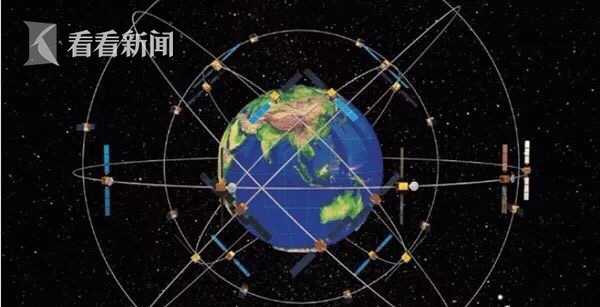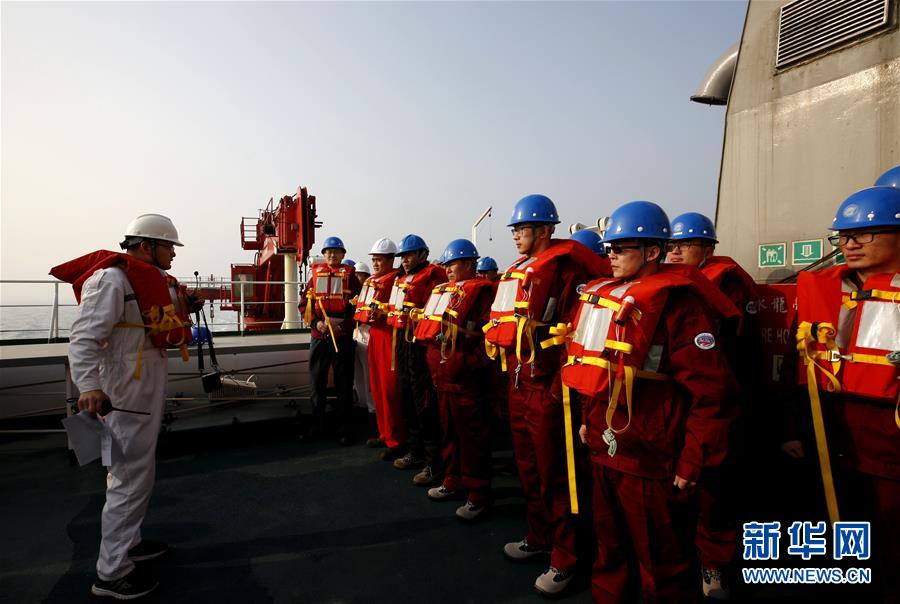
1. The five major functions of the operating system include: process and processor management, operation management, storage management, equipment management and file management.
2. A [Analysis] As the manager of the resources of the computer system, the main function of the operating system is to manage and schedule all the software and hardware resources of the system reasonably and improve the overall performance of the computer system.
3. Operating System (abbreviation: OS) is a group of interrelated system software programs that supervise and control computer operation, use and run hardware, software resources and provide public services to organize user interaction.
4. The main function of the operating system: process management. Resident programs and applications run on the basis of the process.When the computer adopts the von Neumann structure, each CPU can only run one process at a time.
5. The operating system has five functions: processor management: mainly controls and manages the work of the CPU. Storage management: mainly allocate and manage memory. Device management: mainly manage basic input and output devices. File management: responsible for the organization, storage, operation and protection of computer files.
6. The operating system has five functions: processor management: mainly controls and manages the work of the CPU. Storage management: mainly carry out memory allocation and management device management: mainly manage basic input and output device file management: responsible for the organization, storage, operation and protection of computer files, etc.

1. The storage management function of the operating system is to manage memory resources. It mainly realizes memory allocation and recovery, storage protection and memory expansion. The device management of the device management operating system is responsible for allocating and recycling external devices, and controlling external devices to operate according to the requirements of user programs.
2. The functions of the computer operating system include: processor management, memory management, device management, file management, job management and other functional modules. Processor management. The most basic function of processor management is to handle interrupt events. The processor can only detect interrupt events and generate interrupts and cannot process them.
3. The five major functions of the operating system are processor management, memory management, device management, file management and job management. Processor management The most basic function of processor management is to process interrupt events. After configuring the operating system, various events can be processed.
1. The main functions of the computer operating systemIt is process management. Its work is mainly process scheduling. In the case of a single user and a single task, the processor is only exclusive to one user's task. The work of process management is very simple.
2. The five major functions of the operating system are processor management, memory management, device management, file management and job management. Processor management The most basic function of processor management is to process interrupt events. After configuring the operating system, various events can be processed.
3. The role and basic functions of the operating system: the basic functions of the operating system include task management, interface management, human-computer interaction, graphical interface, voice control and virtual reality, etc.; file management; storage management, which is essentially the management of storage "space", mainly refers to the management of the main memory. Reason.
4. The basic functions of the operating system include process management, memory management, file system, network communication, security mechanism, user interface and driver. The operating system is the interface between the user and the computer, and also the interface between computer hardware and other software.
5. The five functions of the operating system are processor management, memory management, device management, file management and job management. Processor management The most basic function of processor management is to handle interrupt events. After configuring the operating system, various events can be processed.
6. The operating system has five functions: processor management: mainly controls and manages the work of the CPU. Storage management: mainly allocate and manage memory. Device management: mainly manage basic input and output devices. File management: responsible for the organization, storage, operation and protection of computer files.
Binance app-APP, download it now, new users will receive a novice gift pack.
1. The five major functions of the operating system include: process and processor management, operation management, storage management, equipment management and file management.
2. A [Analysis] As the manager of the resources of the computer system, the main function of the operating system is to manage and schedule all the software and hardware resources of the system reasonably and improve the overall performance of the computer system.
3. Operating System (abbreviation: OS) is a group of interrelated system software programs that supervise and control computer operation, use and run hardware, software resources and provide public services to organize user interaction.
4. The main function of the operating system: process management. Resident programs and applications run on the basis of the process.When the computer adopts the von Neumann structure, each CPU can only run one process at a time.
5. The operating system has five functions: processor management: mainly controls and manages the work of the CPU. Storage management: mainly allocate and manage memory. Device management: mainly manage basic input and output devices. File management: responsible for the organization, storage, operation and protection of computer files.
6. The operating system has five functions: processor management: mainly controls and manages the work of the CPU. Storage management: mainly carry out memory allocation and management device management: mainly manage basic input and output device file management: responsible for the organization, storage, operation and protection of computer files, etc.

1. The storage management function of the operating system is to manage memory resources. It mainly realizes memory allocation and recovery, storage protection and memory expansion. The device management of the device management operating system is responsible for allocating and recycling external devices, and controlling external devices to operate according to the requirements of user programs.
2. The functions of the computer operating system include: processor management, memory management, device management, file management, job management and other functional modules. Processor management. The most basic function of processor management is to handle interrupt events. The processor can only detect interrupt events and generate interrupts and cannot process them.
3. The five major functions of the operating system are processor management, memory management, device management, file management and job management. Processor management The most basic function of processor management is to process interrupt events. After configuring the operating system, various events can be processed.
1. The main functions of the computer operating systemIt is process management. Its work is mainly process scheduling. In the case of a single user and a single task, the processor is only exclusive to one user's task. The work of process management is very simple.
2. The five major functions of the operating system are processor management, memory management, device management, file management and job management. Processor management The most basic function of processor management is to process interrupt events. After configuring the operating system, various events can be processed.
3. The role and basic functions of the operating system: the basic functions of the operating system include task management, interface management, human-computer interaction, graphical interface, voice control and virtual reality, etc.; file management; storage management, which is essentially the management of storage "space", mainly refers to the management of the main memory. Reason.
4. The basic functions of the operating system include process management, memory management, file system, network communication, security mechanism, user interface and driver. The operating system is the interface between the user and the computer, and also the interface between computer hardware and other software.
5. The five functions of the operating system are processor management, memory management, device management, file management and job management. Processor management The most basic function of processor management is to handle interrupt events. After configuring the operating system, various events can be processed.
6. The operating system has five functions: processor management: mainly controls and manages the work of the CPU. Storage management: mainly allocate and manage memory. Device management: mainly manage basic input and output devices. File management: responsible for the organization, storage, operation and protection of computer files.
 OKX Wallet to exchange
OKX Wallet to exchange
337.47MB
Check Binance Download for PC Windows 10
Binance Download for PC Windows 10
186.94MB
Check OKX app
OKX app
428.71MB
Check Binance exchange
Binance exchange
579.88MB
Check Binance APK
Binance APK
343.62MB
Check Binance US
Binance US
992.26MB
Check OKX Wallet Sign up
OKX Wallet Sign up
743.13MB
Check Binance Download for PC Windows 10
Binance Download for PC Windows 10
825.31MB
Check OKX Wallet APK
OKX Wallet APK
849.76MB
Check OKX Wallet
OKX Wallet
652.69MB
Check Binance app
Binance app
927.26MB
Check Binance Download for PC Windows 10
Binance Download for PC Windows 10
282.83MB
Check Binance download
Binance download
446.97MB
Check Binance login
Binance login
937.44MB
Check Binance login App
Binance login App
498.44MB
Check Binance download APK
Binance download APK
483.49MB
Check OKX Wallet apk download latest version
OKX Wallet apk download latest version
866.44MB
Check Binance wallet
Binance wallet
566.89MB
Check OKX download
OKX download
452.59MB
Check Binance US
Binance US
981.36MB
Check OKX download
OKX download
475.29MB
Check OKX Wallet login
OKX Wallet login
555.16MB
Check Binance download APK
Binance download APK
175.76MB
Check Binance download APK
Binance download APK
761.91MB
Check Binance app
Binance app
979.32MB
Check Binance login App
Binance login App
332.14MB
Check OKX Wallet APK
OKX Wallet APK
833.92MB
Check Binance Download for PC Windows 10
Binance Download for PC Windows 10
447.29MB
Check Binance app
Binance app
336.76MB
Check Binance download
Binance download
848.99MB
Check OKX review
OKX review
197.98MB
Check okx.com login
okx.com login
289.61MB
Check OKX app
OKX app
432.11MB
Check Binance login
Binance login
386.12MB
Check Binance APK
Binance APK
471.37MB
Check Binance login App
Binance login App
695.51MB
Check
Scan to install
Binance app to discover more
Netizen comments More
2816 杀一儆百网
2025-01-23 04:05 recommend
1460 反复推敲网
2025-01-23 02:41 recommend
1865 死得其所网
2025-01-23 02:36 recommend
636 鸿飞冥冥网
2025-01-23 02:31 recommend
1387 意气风发网
2025-01-23 02:24 recommend